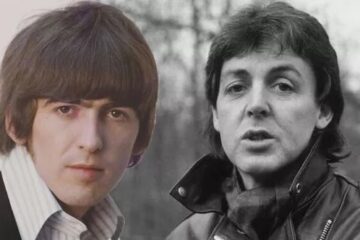Being banned from the radio remains the ultimate marketing tool for musical acts. It immediately gives the act in question an aura of danger, which is a priceless attribute when used wisely, and as The Beatles discovered, it will only heighten intrigue.
Admittedly, The Beatles didn’t produce the same level of explicit or controversial content as many groups have been responsible for over the years. In fact, next to the Sex Pistols and The Stooges, the Fab Four’s back catalogue seems like child’s play. However, As the four Scouse lads rose to an increasing level of public awareness in the 1960s, the BBC felt the need to step in from time to time to throw some red tape over the radio waves.
The 1960s was a time of seismic cultural development. The post-war gloom had begun to abate as the economy thrived in the Western world. At this point, the baby boomer generation matured into adulthood, and they came with an attitude that would upend the hairs on their parents’ necks. This attitude is most easily visualised by looking at the hippie culture: in with colour, psychedelic drugs, and free love and out with war, racism, and materialism.
Of course, The Beatles didn’t start the hippie movement, but they were certainly one of the guiding forces of the counterculture. The youth of the Western world was losing religion and now putting a god-like status on musicians like The Beatles and The Rolling Stones. At the time, this change worried the more conservative people in society, especially when it was discovered that the cheeky mop tops from Liverpool had started taking LSD and writing crackpot lyrics about marmalade skies and claiming to be walruses
The Rolling Stones’ former manager, Andrew Loog Oldham, perhaps took it a little far when coining the alienating headline, “Would you let your daughter sleep with a Rolling Stone?” However, the rift that pop bands created between the generations was palpable in the ’60s. Reacting to the glorification of the hedonistic rock ‘n’ roll lifestyle, the BBC felt it necessary to censor the music at the time that they thought was promoting distasteful or illegal antics.
Although the BBC were also a champion of The Beatles, providing them with a platform to share their songs with millions across the United Kingdom, they also believed the band had a habit of overstepping the line. Due to their status as the biggest band in the world, every song made by the band was put under the microscope by the organisation. While the Fab Four occasionally made references to sex or drugs within their work, they were typically hidden to such a degree that innocent ears could not notice them.




